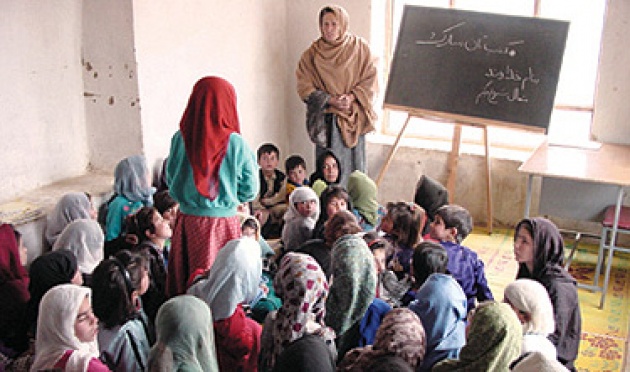The study’s findings include:
• Having a well-trained teacher for a single grade increases by 0.5 percentage points a student’s probability of attending college by age 20. The institutions attended are also of higher-quality as measured by the earnings of previous graduates.
• Students with well-trained instructors had “significantly higher earnings growth rates in their 20s.” Having a better teacher for a single grade increased a student’s earnings at age 28 by 1%.
• Having well-trained teachers was associated with a lowered probability of teenage births for a student; this factor also improved the likelihood of the students living in higher-quality neighborhoods.
The data is clear – well-trained teachers have the ability to directly impact the development of a society at its roots, and this conclusion is even more meaningful to societies in conflict and transition, like Afghanistan.
In an effort to better address the lack of trained teachers in Afghanistan, I have proposed development of The Exceptional Children’s Laboratory School. Our laboratory school will be a living laboratory of K-12 student development in special education. The Exceptional Children’s Laboratory School will function as a setting for faculty research and where undergraduate and graduate students work together serving as assistants in the classes and as participant observers in the ongoing life of the classroom. The Exceptional Children’s Laboratory School will also serve as a model of education practice and as a fieldwork site developing best practices in the art of teaching students with disabilities in developing countries. We will engage in practices of teacher training, curriculum development, research, professional development, and educational experimentation for special education in Afghanistan, and we will act as a voice speaking for the improvement of learning for all children.
The Exceptional Children’s Laboratory School is committed to preparing teachers while delivering quality instructional programs for children in the classroom. Our laboratory school will be affiliated with a college or university based in Kabul for specific purposes that go beyond the scope of traditional public and private schooling institutions, and will reflect the diverse needs of the teaching professional and assist in improving the science and art of teaching.
Finally, considering the challenges present in Afghanistan, cost-effectiveness and ease of implementation remain primary in the success of establishing any education model and these principles are central to The Exceptional Children’s Laboratory School. Our teacher-mentoring model is fully-exportable to other provinces and there is currently no other institution, private or public, engaged in this kind of activity in Afghanistan or the region. In Afghanistan, individuals with disabilities have the potential to contribute to the development of their communities and the stability of their country and they deserve the opportunity to do so, and well-trained teachers are key to that success.




